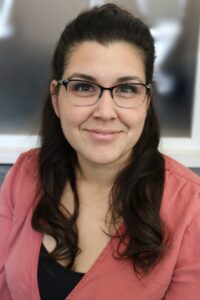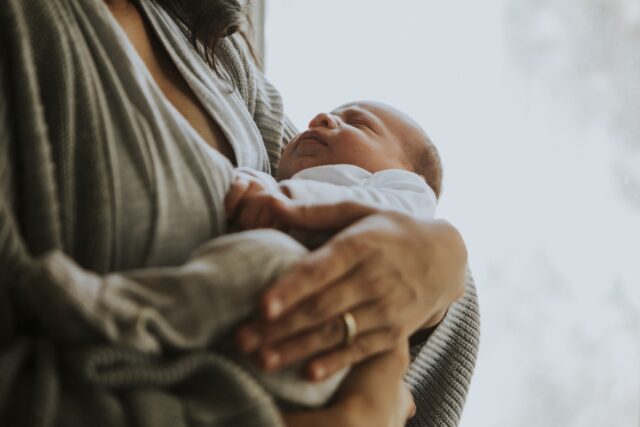According to resources such as those at https://yourlovingchoices.org/, pregnancy and new parenthood are tremendously vulnerable times for both the parent and the newborn – and the most important time to live as healthfully as possible. That includes quitting smoking, drinking and the use of other substances.

“It’s such a crucial time,” says Moranda Medina-López, a bilingual maternal and child health educator at First Breath, a program of the Wisconsin Women’s Health Foundation that helps pregnant people make positive changes during pregnancy and beyond. “Substance, alcohol and tobacco use during pregnancy can affect a fetus for the rest of their life. We’re talking about neurodevelopmental impacts, physical impacts, respiratory impacts.”
That doesn’t mean it’s easy to quit, though. Many people use tobacco, alcohol, and other substances to cope with stress – and there aren’t many things more stressful than becoming a parent. Especially among pregnant and parenting people who are experiencing poverty, struggling with their mental health, and experiencing major life stressors.
“What I run into with participants is lack of coping skills. The number one and two reasons that program participants say that they smoke is to deal with stress and to deal with mental health symptoms, whether it’s anxiety, depression, worrying, those kinds of things,” Medina-López said.
The First Breath program provides counseling and support for expectant and new parents to cope with those stressors without turning to tobacco or other substances.
“If you’re an expectant person, and you would like to reduce or completely stop or stay abstinent from tobacco, alcohol and other substances, the program is good for you,” Medina-López said.
Even if you’ve already quit, sometimes you need a little help to stay quit.
“I have a participant right now that is in the midst of her third pregnancy. After each pregnancy, she has been smoke free for a while. Then starts to smoke again,” Medina-López said. “And when she gets pregnant again and says, ‘No, I need to quit. Can you help me quit?’ Yep. And we’ll work together again.”
The program consists of a number of visits (currently most visits are virtual but can be done in person if certain COVID criteria are met) and calls at various stages of pregnancy as well as up to six months after the baby is born. Participants that use tobacco can receive gift cards for attending visits and staying smoke-free.
Over the course of more than 20 years, the First Breath program has served more than 23,000 people. It has focused on helping people quit smoking until last year, when services were officially expanded to provide support to address all substances.
Medina-López said First Breath’s work is evidence based, studied and scientifically validated by randomized controlled trials. It’s also shaped by the participants themselves, who help develop and approve new program materials and services. Annual satisfaction surveys indicate that 97 percent of participants would recommend First Breath to others, Medina-López said.
The whole process starts with a non-judgmental approach and education, Medina-López said.
“If folks don’t know about all the damage that can be done during pregnancy, infancy and the childhood years by using tobacco, alcohol and other substances, it’s just going to continue happening and this cycle is just going to continue,” she said.
First Breath is open for all, but usually serves people with lower incomes and education levels and “people who typically have a history of trauma and not receiving the care that they need,” Medina-López said. “It doesn’t matter if you’re insured, uninsured, undocumented, speak English, speak Spanish, speak Hmong. Doesn’t matter color, race, creed, anything like that,” Medina-López said.
Participants are typically referred by a First Breath provider, but don’t have to be. “A First Breath Provider can be an OB-GYN, it can be a nurse. It could also be a nutritionist at the WIC office,” Medina-López said. “It can also be a receptionist at the community center. It can also be a case manager.”
Medina-Lòpez said she and the five other maternal health educators live in the communities they serve, which allows them to understand the unique challenges of the community, and they use a strength-based and trauma-informed approach to their work.
“When you have a trauma-informed approach, you’re going in without judgment. Without bias. You’re trying to understand all the different reasons a person may use tobacco, alcohol or other substances. We always approach people with empathy and compassion. We’re building safe spaces for participants to disclose what they would like to change regarding their tobacco, alcohol and/or substance use. We don’t judge, shame or stigmatize. Some people don’t trust you when you first come in. They might not feel comfortable or safe disclosing their tobacco, alcohol or other substance use to you, that’s why creating a safe space is so important. There’s fear of legal repercussions, there’s fear of judgment,” Medina-López said. “Trauma-informed care puts the participant in the driver’s seat. Subsequently participants’ confidence in themselves grows. First Breath is a voluntary program. As their Health Educator I am not here to tell them what to do. I’m here to provide education, encouragement, and resources. You tell me what your goals are, what you’re willing to try and I will support you to the best of my ability.”
If you’re pregnant or have recently given birth, ask your health care provider about the First Breath Program, visit the First Breath web site, call the program directly at 608-888-2768 or text FB to 29669.




























